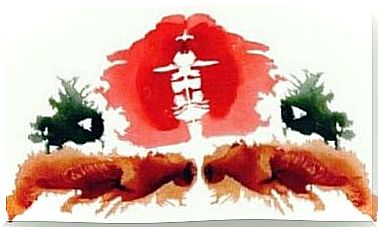What Is Populism? Read More About It Here!

The term populism is becoming increasingly popular. Some see it in a sense as a synonym for demagoguery. It is applied indiscriminately to governments, political regimes, forms of government, personalities or economic policies.
It’s a term you may hear regularly, and always in a derogatory way. However, this word has not always been a common tool in media and political discussions. Previously, it was actually a simple academic term with many nuances.
In this article, we study the origins and perspectives of populism. In addition, we study the main features of Latin American populism.
The perspectives of a populist government
It is very difficult to give a systematic definition of this term. However, we can consider three perspectives when talking about populism:
- Populism as an ideology. This ideology divides society into two antagonistic groups. First, we have the people who are pure and real. Second, we have the elite, who are corrupt. With this concept of populism, one can understand the reasons why some individuals use this term to define such diverse kinds of policies.
- Like a reasoning style. According to this perspective, populism is a style of debate. In fact, it sees politics as something ethical and moral between the people and the oligarchy. It is the language used by those who claim to speak on behalf of the people: “We” (the people) and “They” (the elite).
- Populism as a political strategy. This is the most common perspective of all. According to this view, populism is the application of a particular economic policy. For example, the redistribution of wealth or the nationalization of companies. Moreover, populism is also a form of political organization in which a leader exercises power with the support of his followers. It usually belongs to marginalized sectors.

Where does this term come from?
As mentioned before, before this term became so popular, it had an academic usage. The first time anyone used it was at the end of the 19th century, to identify a phase of the development of the socialist movement in Russia.
This term was used to describe the anti-intellectual wave, which refers to the belief that socialist militants had to learn from the people before they can be their guide.
A few years later, Russian Marxists started using the term with a derogatory meaning. They applied it when they referred to those socialists who thought that the main subjects of the revolution were the peasantry and that they could build rural communities from a future socialist society.
Furthermore, the international socialist movement began to use “populism” to refer to a movement opposed to the upper classes. However, unlike Marxism, it was nationalistic and identified with the peasantry.
Anti-Intellectual Tendencies of Populism
On the other hand, and with no apparent connection to the Russian term, Americans came to use it when referring to the short-lived People’s Party, which was mainly supported by poor peasants with anti-elitist and progressive ideas.
So you can see that in both cases the term refers to a nationwide movement with anti-intellectual leanings. Nevertheless, in the 1960s and 1970s, other academics began to use the term again in a different sense.
They used it to name a series of Third World reform movements (such as Peronism in Argentina, Varguism in Brazil, and Cardenism in Mexico).
The distinguishing feature here was the type of leadership. It was personal rather than institutional, individual than pluralistic, emotional rather than rational.
For example, academia went from using the term “populism” to define peasant movements to using it to designate a broad ideological and political phenomenon. In the 1970s, populism was considered to be any movement that threatened democracy with a negative connotation.

Populism in Latin America
Its inclusive nature is the main recognizable characteristic of Latin American populism. Specifically, three elements define this property:
- Popular Sovereignty. After the United States and Haiti, Latin America was the first area of decolonization. The idea of a nation arose, which led to the building of national communities, where there used to be colonies led by white elites. In fact, Latin American populism was based on an original idea of popular sovereignty.
- state weakness. A historic weakness that has hindered the fulfillment of populist promises and their fulfillment in rights. Populist cycles are converging, given the promises of rights violations.
- The populist response. Latin American populism arises in response to the limitations of the systems that precede it. This concerns inequality, instability and political volatility. The promise of populism thus has a material and symbolic basis, pretending to have a voice and voting for the dispossessed.
So, because it is basically a recognition of ignorance and of the need for knowledge for those who want to rule, it has come to show itself in certain political movements that try to win the sympathy of the people with their proposals, regardless of what they propose. is the best for the people.








